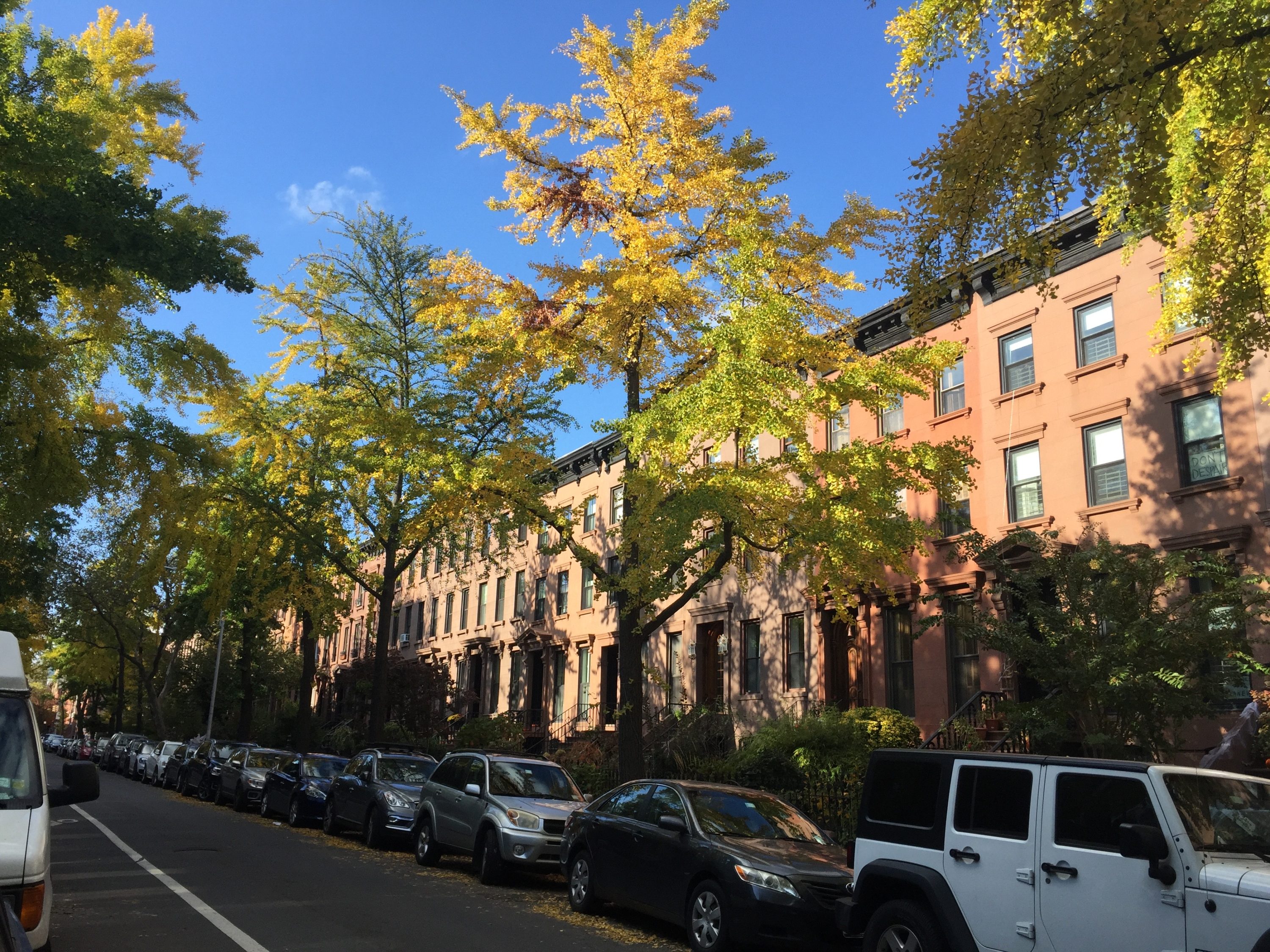What’s that smell? Stinky ginkgo trees bring their scent to Brooklyn
Why does the city choose to plant the smelly trees along curbs?

Few smells signal the arrival of fall in the city like the pukey odor of the ginkgo biloba tree. Each year, ginkgos shower the sidewalks with their pungent seed pods, creating an obstacle course for anyone trying to pass beneath the branches without squishing a stink bomb under their shoe.
But why does the city plant ginkgos along curbs, where the foul-smelling fruit lands on the sidewalks? Because the ginkgo is “a great street tree,” according to Anessa Hodgson, a spokesperson for the city’s Parks Department. It’s sturdy enough to withstand all the pollution, disease, insects, pet waste, soil compaction, road salt, wind and piled up snow that city life can hurl at it, while many species aren’t.
The ginkgo is known for its fan-like leaves, which have been found in the fossil record dating back over 270 million years. Dried ginkgo leaves have been used for centuries in traditional Chinese medicine to ease lung ailments and improve circulation. For anyone brave enough to scrape away the pod’s smelly flesh, the seeds within are edible when cooked and, reportedly, pretty tasty.

Brooklyn Boro
View MoreNew York City’s most populous borough, Brooklyn, is home to nearly 2.6 million residents. If Brooklyn were an independent city it would be the fourth largest city in the United States. While Brooklyn has become the epitome of ‘cool and hip’ in recent years, for those that were born here, raised families here and improved communities over the years, Brooklyn has never been ‘uncool’.